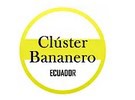The effects of the law on the banana industry were analyzed in an event organized by the Ecuadorian Banana Cluster on June 30th. The new law brings developments in human rights, commercial and contractual relations.
More than 300 people from 20 countries attended the event and participation came from banana growers, members of the Bundestag (German parliament), institutional representatives and civil associations.
June 11th, German parliament passed the Due Diligence and Supply Chain Act. The law seeks to ensure proper compliance with human rights in the supply chain of products traded in Germany.
Germany now becomes the third country within the EU to have such a law, right after France and the Netherlands. The law, which will come into effect in 2023, will affect all German-based companies with more than 3,000 employees and their direct suppliers.
How German retailers, monitored by the Federal Office of Economics and Export Control (BAFA), behave is crucial as it can introduce new clauses in contracts, new certifications or control measures. It will also be necessary to examine whether possible cost increases are distributed and shared among all actors in the chain.
To understand the importance of implementing this law, the Ecuadorian Banana Cluster organized the online event "Towards a Fair Banana - Shared responsibility between producers and retailers."
At the event, José Antonio Hidalgo, executive director of AEBE, defended the need to develop a shared responsibility scheme that distributes costs fairly among all actors in the value chain, from producers to consumers. Daniel May, representative of the German Society for International Cooperation, shared the same position but pointed to a commitment on the part of all actors. The distribution of costs is something of equal concern to European producers, not only to Latin American producers. The capacity of governments to act is often limited by competition or antitrust rules.
In this regard, Isabel Albornoz, Chargé d'Affaires for the Embassy of Ecuador to Belgium, Luxembourg and the European Union, highlighted Ecuador's initiatives in due diligence and in defence of producers. "Ecuador is the only country in the world that reflects a living wage higher than the minimum wage for banana workers, and it does so in its 2008 Constitution,” said Albornoz.
A debate at the event touched on certifications that supermarkets require for bananas to be sold on their shelves. Peter Möhringer from Fairtrade Germany stated that certifying due diligence issues would increase costs and should be considered when talking about production costs.
Finally, the debate ended by indicating that this law will not be the only one among EU countries. Although Germany is the third country to develop such a law, the European Commission, the EU's highest governing body, plans to develop a single law that Member States will have to implement in their national legislation in the coming years.
 For more information:
For more information:
Juan José Pons
Ecuadorian Banana Cluster
oordinador@clusterbananerodelecuador.org
